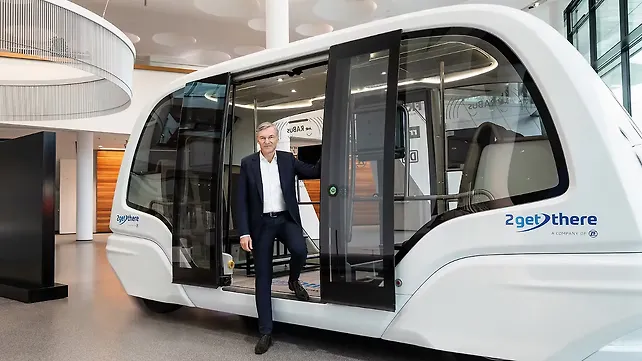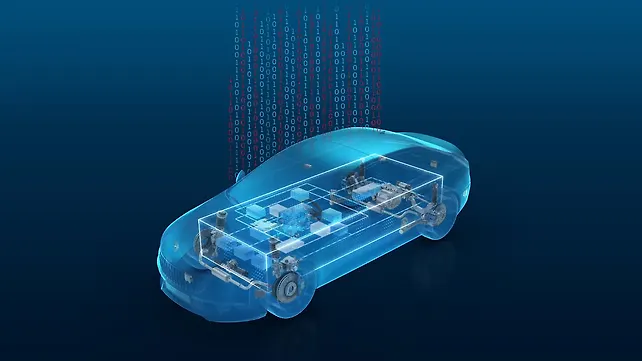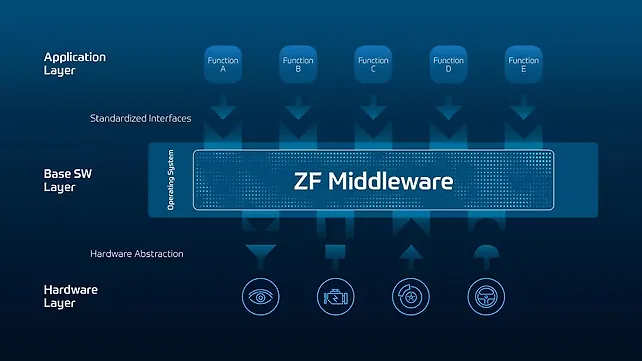
The impact of COVID-19 and the slowing global economy notwithstanding, technology leader, ZF has projected a fairly optimistic 2021. In a recent release issued by the company, ZF expects to generate sales of between €37-39 billion this year, up from the €32.6 billion in 2020. The current semiconductor supply shortages in the automotive sector represent a challenge, noted the company, but at this point, the impact on the full year 2021 cannot yet be assessed, it said.
ZF, the Friedrichshafen, Germany-headquartered supplier has been focussing on enabling the next generation of mobility with businesses across passenger and commercial vehicles, as well as industrial applications.
Last year, despite the economic and health-related challenges, ZF made a few significant changes to its overall business. It founded the Electrified Powertrain Technology Division, acquired Wabco, sold its independent software solutions, and also started a new software centre. Moreover, the company was able to secure substantial customer orders in new technology business sectors.

Chief Executive Officer Wolf-Henning Scheider called 2020 an ambivalent year. “Nevertheless, we mastered the crisis together, further advanced the company’s transformation and secured substantial new orders in strategically important fields of future technologies,” he said.
Positive Developments
The newly established Electrified Powertrain Technology Division bundles conventional, hybrid and purely electric drive technologies for passenger cars, with a mandate to offer customers the entire range of e-mobility from a single source in all mobility areas. Scheider said this approach has successfully transformed the company to e-mobility.
The core of the product range is the inverter as a central component of power electronics. By the end of 2020, ZF won orders worth €14 billion over the next several years for electric driveline components. Scheider has spelt out his vision of becoming the market leader in this segment in Europe as well as a top global supplier.
By the end of this year, commercial vehicle technology company Wabco will be combined with the existing ZF Commercial Vehicle Technology Division. Wabco was acquired by ZF on May 29, 2020. The new entity is expected to become of the leading system suppliers in the CV sector globally. In fact, the new entity has already developed initial joint projects and turned them into customer orders. “Wabco turns out to be more of a perfect match every day,” said CEO Scheider.

Meanwhile, ZF has founded a Global Software Center to accelerate the development of software solutions and to turn data-based products and services into profitable business models. This bears high potential because the software share in the vehicle will continue to increase, and more and more components are equipped with sensors that are potential data sources. This would be for the first time that ZF will offer software products that customers can purchase independently of the hardware. Recently, the Global Software Center presented an automotive middleware software stack for high-performance central computers in future vehicles.

Next-generation cars are scheduled to get powerful central computers in place of many small control units currently. To that effect, hardware components such as the modular ZF ProAI high-performance computer will be in great demand. In its latest configuration, ZF ProAI will set new standards for the digitalisation and networking of the automobile, claimed the company. ZF is scheduled to supply several million ZF ProAI units for both passenger cars and commercial vehicles globally.
Ambitious Targets
By 2040, ZF intends to become climate-neutral, a decade earlier than planned as per the Paris Agreement. The focus of sustainability efforts is placed on the four areas of products, production, employees, and supply chain. Among other things, the company wants to systematically cut its CO2 emissions throughout its supply chain. ZF has also joined the “Alliance of CEO Climate Leaders” of the World Economic Forum because environmental protection can only be managed successfully in a joint effort.
From a business perspective, ZF reported sales of €32.6 billion in 2020, which is 11% lower than the previous fiscal’s €36.5 billion. Net profit after tax of minus €741 million is essentially due to provisions for restructuring and substantial upfront expenditures for future tasks, which ZF wants to pursue despite strict cost discipline, the release stated. The company expects strong recovery in business in 2021, and expects to generate sales of between €37-39 billion this year.
Significantly, the company hasn’t compromised on its R&D activities. As a ratio of its sales, ZF invested 7.7% last year, compared to 7.3% in 2019. This corresponds to R&D expenses of €2.5 billion in 2020, as against €2.7 billion in 2019. Wabco’s figures are included in the consolidated financial statements for the seven months following the acquisition, the company announced.